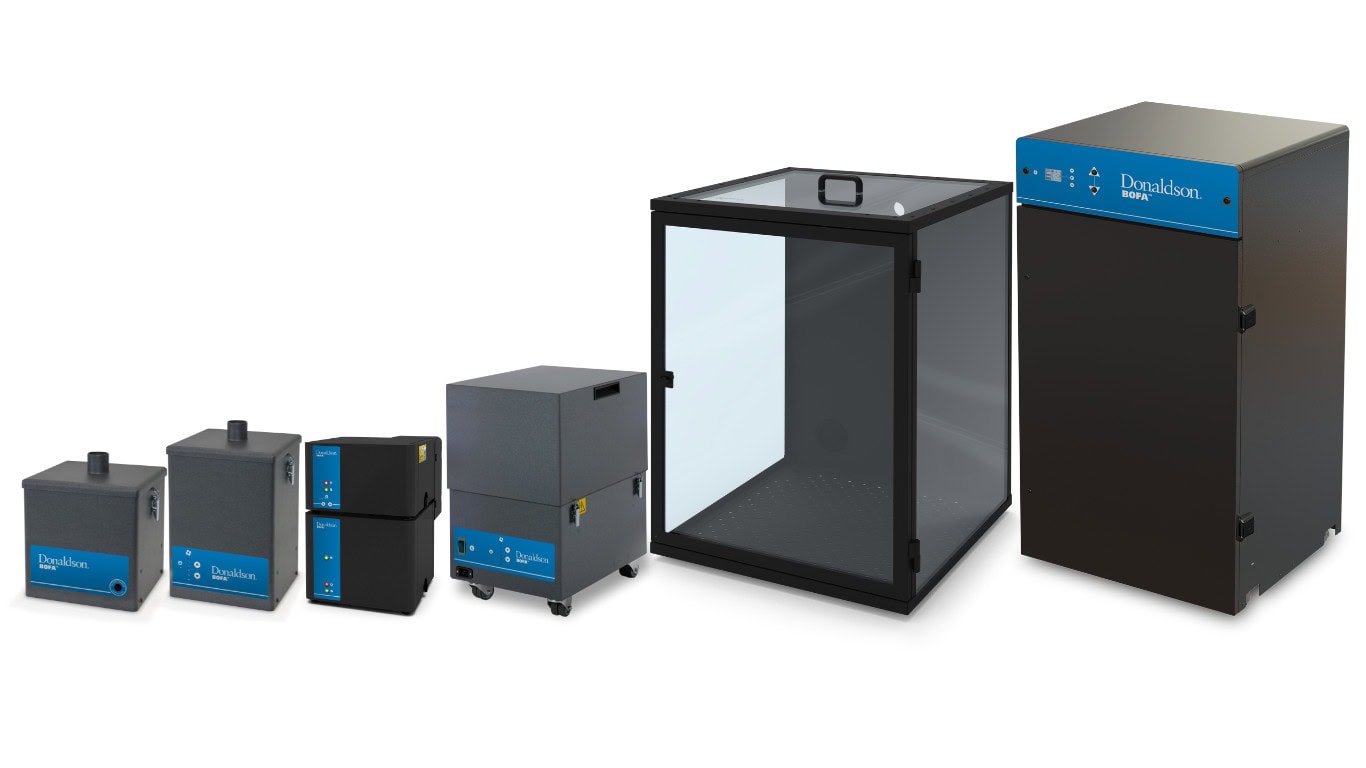From medical visors to spacecraft components, 3D printing is transforming modern manufacturing. Yet despite its growth, there remains limited authoritative insight into the emissions and by-products produced during additive manufacturing processes. Research by Donaldson BOFA—a global leader in portable fume and dust filtration—highlights how effective filtration and atmosphere management technologies not only help improve workplace environmental conditions but also support productivity and process reliability.
Donaldson BOFA supports manufacturers in managing 3D printing environments through advanced, process-specific filtration solutions. The company offers a range of portable filtration and atmosphere management systems designed for additive manufacturing applications. These systems use multi-stage filtration to capture nanoparticles, fine particulate, fumes, and gases, helping to reduce the risk of airborne contaminants entering the workspace or accumulating on sensitive equipment, which could potentially impact product quality.
The term ‘3D printing’ covers many additive manufacturing processes but they share a need for effective removal of particulate and fume to help operators meet their obligations under the Occupational Safety and Health Administration. Donaldson BOFA’s portable range of extraction systems for this sector also helps filter print residue that would otherwise build-up on expensive machinery. In time, this debris could potentially degrade high-value components, affect product quality and impact productivity.
Donaldson BOFA has developed a range of systems for the 3D printing sector, with filter technology and extraction performance matched to specific applications.
Donaldson BOFA’s industry research into 3D print emissions can be downloaded by visiting https://www.donaldsonbofa.com/bofa-publishes-research-paper-on-3d-print-industry-emissions/


